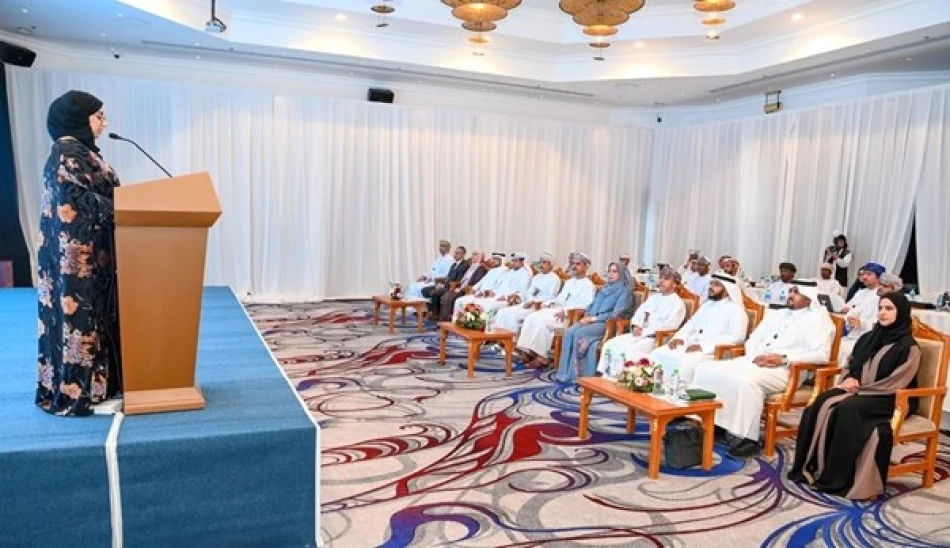
Gulf Environmental Performance Index Components Discussed in Regional Workshop
Gulf States Launch Unified Environmental Performance Index to Track Climate Progress
The Gulf Cooperation Council (GCC) is developing a comprehensive environmental performance index to monitor and compare sustainability efforts across member states, marking a significant shift toward data-driven environmental policy in a region traditionally focused on oil-dependent economies. The initiative, discussed at a recent workshop in Salalah, Oman, aims to create standardized metrics for tracking progress on water scarcity, air quality, and climate commitments.
Regional Environmental Awakening
The GCC Statistical Center's workshop brought together environmental specialists and experts to design what officials describe as a "strategic tool" for measuring environmental performance across the six Gulf states. The index will track land and agriculture indicators alongside water quality metrics, providing a unified framework for regional environmental assessment.
Dr. Abdullah bin Ali Al-Omari, Chairman of the Environment Authority, emphasized that the index represents "an important milestone in Gulf environmental cooperation" and will help policymakers align with both national priorities and international commitments. This development comes as Gulf states face mounting pressure to diversify their economies and demonstrate climate leadership ahead of global sustainability targets.
Impressive Regional Progress
Oman's Dramatic Rise
Oman has achieved the most striking improvement, jumping over 100 positions in the global Environmental Performance Index within just two years to claim second place in the Middle East rankings. This remarkable ascent reflects the sultanate's aggressive environmental reforms and suggests that rapid progress is possible when governments prioritize sustainability metrics.
UAE Leading Regional Efforts
The United Arab Emirates continues to top regional environmental performance rankings, driven by successful air quality management and extensive green space expansion. The UAE's approach of integrating environmental goals with economic diversification has created a template that other Gulf states are now following.
Specialized National Strategies
Each GCC member has carved out environmental niches: Qatar focuses on water conservation and natural resource protection, Kuwait advances air quality improvements and emissions reduction, Saudi Arabia emphasizes marine environment protection through large-scale programs, and Bahrain makes strides in waste management and urban greening initiatives.
Strategic Implications for Global Competitiveness
Intisar bint Abdullah Al-Wahibiya, Director General of the GCC Statistical Center, positioned the environmental index as more than a measurement tool—it's a competitive advantage. By demonstrating clear environmental commitments through quantifiable metrics, Gulf states aim to enhance their global standing and attract sustainable investment capital.
This approach mirrors successful environmental indexing efforts in Singapore and Nordic countries, where transparent environmental reporting has become integral to national branding and foreign investment attraction. For Gulf economies seeking to reduce oil dependency, strong environmental performance scores could prove crucial for accessing green finance markets and sustainable development funding.
Addressing Regional Environmental Challenges
The index directly confronts the Gulf region's most pressing environmental issues: water scarcity, climate change impacts, and air pollution. These challenges are particularly acute in a region where summer temperatures regularly exceed 50°C and freshwater resources remain critically limited.
Unlike previous environmental initiatives that often remained aspirational, this index creates accountability mechanisms and enables performance comparisons both within the region and against global standards. The data-driven approach should help identify successful policies for regional replication while highlighting areas requiring intervention.
Economic Integration with Environmental Goals
The initiative reflects a broader recognition that environmental sustainability and economic competitiveness are increasingly interlinked. As global supply chains face mounting sustainability requirements and international investors prioritize ESG criteria, Gulf states with strong environmental performance metrics will likely enjoy competitive advantages in attracting capital and securing trade partnerships.
The unified regional approach also creates opportunities for coordinated environmental policies and shared best practices, potentially accelerating progress across all member states while strengthening the GCC's collective negotiating position in international climate discussions.
Most Viewed News

 Layla Al Mansoori
Layla Al Mansoori






